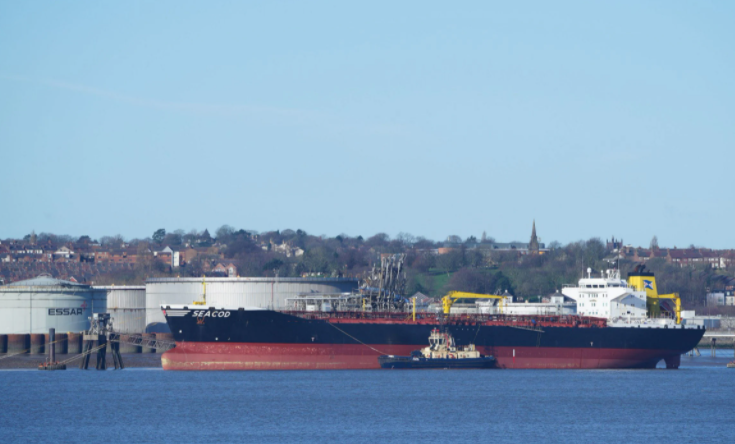
Dockworkers around the world are pushing to widen bans on Russian ships from their ports, moves that would potentially blacklist more than 1,700 vessels connected to the country as its invasion of Ukraine strains already-disrupted global supply chains.
Longshoreman unions from Canada, the U.S. and Australia are taking the steps on their own or are asking their governments to refuse entry to Russian merchant ships, following the U.K.’s decision to do so as part of a growing array of sanctions against Vladimir Putin’s regime.
“Workers around the world are defiant in opposition to Russia’s invasion including thousands of dockworkers showing solidarity with the people of the Ukraine and contempt for Putin’s aggression,” Paddy Crumlin, President of the International Transport Workers’ Federation (ITF), said in a statement Thursday.
The shipping industry that served as a lifeline to economies through the pandemic is joining the global backlash against Putin’s military offensive by severing trade links. Almost all of the largest seaborne container carriers — with China’s Cosco Shipping Co. being a notable exception — are publicly refusing to book Russian cargo.
Mediterranean Shipping Co. and A.P. Moller-Maersk A/S, the world’s two biggest container lines, halted bookings for Russian freight, with Maersk warning customers that the wider fallout will have “a global impact, and not only limited to trade with Russia.”
In a tweet on Thursday, the San Francisco-based International Longshore & Warehouse Union said its members “will not load or unload any Russian cargo coming into or going out of all 29 U.S. West Coast ports.”
Dockworkers in the U.K. announced late last month that its members at ports would refuse to load and unload Russian-owned or controlled vessels in British ports. The union representing dockworkers and seafarers in Australia wants to do the same, and is pushing for Prime Minister Scott Morrison to join other governments in sanctioning Russia. A union representative said it would be difficult for members on the ground to enforce an embargo without the government’s cooperation.
In New Zealand, the Maritime Union of New Zealand and the Rail and Maritime Transport Union joined last week to hand letters of protest to the captains of Russian-flagged and owned vessels coming into the country’s ports.
The ITF estimates there are about 1,522 Russian-flagged vessels over 500 gross tonnes, with the majority being container ships, bulk carriers and tankers, according to databases available to the union. Additionally, about 200 vessels are not Russian-flagged but are registered to beneficial owners in Russia or controlled from the country, it said.